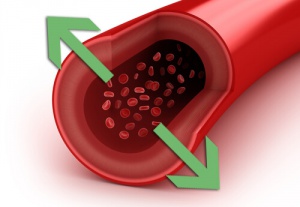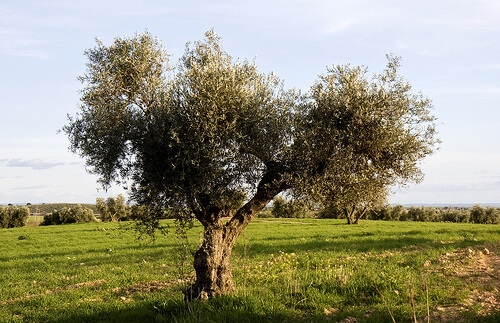Medicinal Plants for Hypertension


Reviewed and approved by the pharmacist Lourdes Martínez
Hypertension is a disease that involves the increase in pressure above the normal limit, which is estimated at 140/90 in adults. This condition commonly affects older people.
It is one of the quietest diseases that someone can suffer from, so prevention is a very important factor. It can affect your brain, heart, and kidneys, among other things. Hypertension might even increase your risk of suffering a stroke.
Although no specific cause of hypertension has been found, some factors have been established that could be possible influencers. Some examples are excessive consumption of salt, alcohol, or tobacco. A sedentary lifestyle may also increase your risk.
Also Read: How to Know if You’re Addicted to Alcoholic Beverages
Anyone is susceptible to getting this disease, which is why it is essential that you get routine checkups. If you already have it, follow the instructions your doctor gives you and combine them with a healthy diet and an adequate exercise routine. The medicinal plants for hypertension that we will list below might also help.
Mistletoe
Mistletoe has a diuretic effect, strengthens the heart, and reduces blood cholesterol, because it acts as a vasodilator.
- Boil 5 g of mistletoe for 15 minutes and drink a tablespoon of it.
- Boil 15 mistletoe leaves in a half liter of water for 15 minutes and drink 2 cups a day for 5 to 7 days.
Lavender

You can control hypertension that happens unexpectedly with 10 drops of lavender in a cloth. This remedy comes from aromatherapy and has more benefits like cellular reproduction and helps treat wrinkles, scars, and stretch marks.
See Also: How to Make and Use Lavender Oil
Yarrow
Some studies have shown that yarrow is effective for reducing blood pressure and helps bolster medication to treat hypertension. You can make an infusion with the flowering tops in a glass of water. After that, you can have this mixture a few times a day.
This plant is also used for caring for the respiratory and circulatory system and depression.
White hawthorn may be helpful for hypertension
This plant regulates the cardiac rhythm. At the same time, it dilates the coronary arteries and improves heart functioning and pressure. Some studies also show it can help with anxiety, tachycardia, and cholesterol reduction.
Make a white hawthorn infusion by pouring a cup of boiling water over two tablespoons. Drink two or three cups a day.
Olive tree
Green olive tree leaf extract has been effective for the treatment of hypertension.
You can boil a tablespoon of leaves in a cup of water for ten minutes. Drink it on an empty stomach and before you go to bed.
All cited sources were thoroughly reviewed by our team to ensure their quality, reliability, currency, and validity. The bibliography of this article was considered reliable and of academic or scientific accuracy.
- Ali, B., Al-Wabel, N. A., Shams, S., Ahamad, A., Khan, S. A., & Anwar, F. (2015). Essential oils used in aromatherapy: A systemic review. Asian Pacific Journal of Tropical Biomedicine. https://doi.org/10.1016/j.apjtb.2015.05.007
- Applequist, W. L., & Moerman, D. E. (2011). Yarrow (Achillea millefolium L.): A Neglected Panacea? A Review of Ethnobotany, Bioactivity, and Biomedical Research1. Economic Botany. https://doi.org/10.1007/s12231-011-9154-3
- Barnes, R. C., Krenek, K. A., Meibohm, B., Mertens-Talcott, S. U., & Talcott, S. T. (2016). Urinary metabolites from mango (Mangifera indica L. cv. Keitt) galloyl derivatives and in vitro hydrolysis of gallotannins in physiological conditions. Molecular Nutrition and Food Research. https://doi.org/10.1002/mnfr.201500706
- Chang, Q., Zuo, Z., Harrison, F., & Chow, M. S. S. (2002). Hawthorn. Journal of Clinical Pharmacology. https://doi.org/10.1177/00970002042006003
- Moreno-Luna, R., Muñoz-Hernandez, R., Miranda, M. L., Costa, A. F., Jimenez-Jimenez, L., Vallejo-Vaz, A. J., … Stiefel, P. (2012). Olive oil polyphenols decrease blood pressure and improve endothelial function in young women with mild hypertension. American Journal of Hypertension. https://doi.org/10.1038/ajh.2012.128
- Verma, S., Singh, A., & Mishra, A. (2013). Gallic acid: Molecular rival of cancer. Environmental Toxicology and Pharmacology. https://doi.org/10.1016/j.etap.2013.02.011
This text is provided for informational purposes only and does not replace consultation with a professional. If in doubt, consult your specialist.









